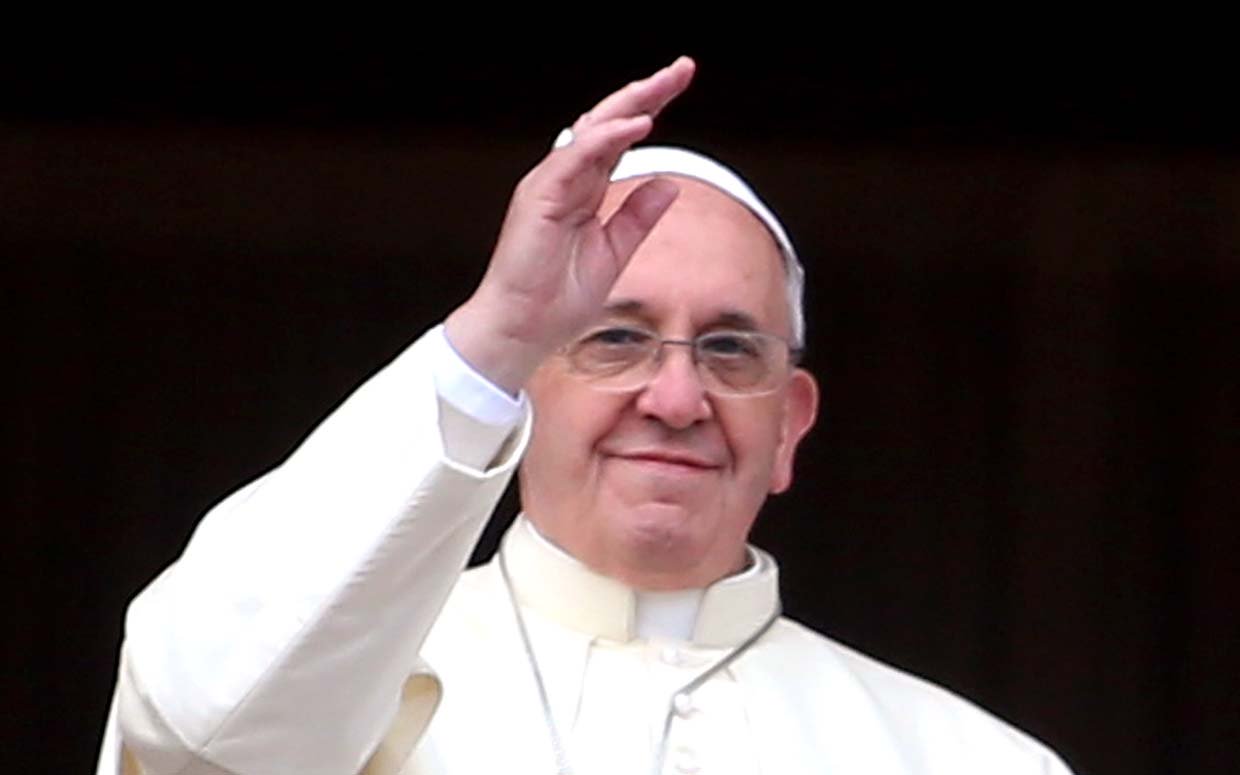Pope Francis looked ahead to life after the coronavirus pandemic in a Spanish article published Friday that examines the current crisis in light of Christ’s resurrection.
Entitled “A plan to rise again,” the pope’s message calls for renewed solidarity in the unity of the Holy Spirit, which he said cannot be confined in its work of “making all things new.”
“This is the right time to encourage a new imagination of what is possible with the realism that only the Gospel can provide us,” Pope Francis wrote in an article published on April 17 in the Spanish magazine, Vida Nueva.
The pandemic has helped people to realize the importance of “uniting the entire human family in the search for sustainable and comprehensive development,” he said.
“We cannot afford to write present and future history with our backs to the suffering of so many,” he argued. “If we act as one people, even in the face of the other epidemics that lie in wait for us, we can have a real impact.”
The pope said that he hoped humanity had developed the “antibodies of justice, charity, and solidarity” when faced with the temptation to return to “the globalization of indifference.”
“Will we be able to act responsibly against the hunger that so many suffer, knowing that there is food for everyone?” he asked. “Will we continue to look the other way with complicit silence in the face of those wars fueled by desires for dominance and power?”
He continued: “Will we be willing to change the lifestyles that plunge so many into poverty, promoting and encouraging ourselves to lead a more austere and humane life that enables an equitable distribution of resources? Will we as the international community take the necessary steps to stem the devastation of the environment, or will we continue to deny the evidence?”
He called for “a civilization of hope” that rejected fear, discouragement, and passivity, pointing to Jesus’ resurrection as the foundation of hope.
“Like the first disciples who went to the tomb, we live surrounded by an atmosphere of pain and uncertainty … The pain and mourning for our loved ones disorients us, distresses and paralyzes us. It is the heaviness of the gravestone that imposes itself on the future and that threatens … to bury all hope,” he said.
“God never abandons his people, he is always with him, especially when the pain becomes more present,” he added.
The pope said that in suffering one takes part in the passion of the Lord and has the hope of being united with the Lord in his resurrection as well.
“If there is one thing we have been able to learn in all this time, it is that no one can save himself,” he noted.
The pope commended the doctors, nurses, caretakers, janitors, security workers, volunteers, priests, nuns, grandparents, and educators who have contributed at a time of crisis.
“An emergency like COVID-19 is defeated in the first place with the antibodies of solidarity,” the pope wrote.
“We witnessed how neighbours and family members set out with effort and sacrifice to stay in their homes and thus curb the spread,” he said.
“Each individual action is not an isolated action, for better or for worse, it has consequences for others because everything is connected in our common home; and if the health authorities order house confinement, it is the people who make it possible, aware of their co-responsibility to stop the pandemic.”
In solidarity, he said, people can also jointly respond to the many problems that afflict millions of people around the world after the pandemic.
“It is urgent to discern and find the pulse of the Holy Spirit in order to promote, together with others, the dynamics that can testify to and channel the new life that the Lord wants to generate at this specific moment in history,” he said.
“It is the breath of the Holy Spirit that opens horizons, awakens creativity and renews us in fraternity … before the enormous and urgent task that awaits us.”

